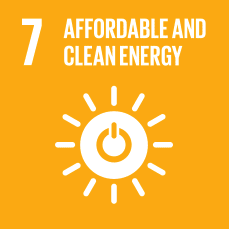

As a leading integrated group in the polish oil and gas sector, PGNiG Group has a wide range of both retail and business customers.
The PGNiG Group customers purchase from it primarily natural resources, mainly natural gas and crude oil as well as other products and services provided by numerous Group companies.
|
Customers by key commodities and products sold by the Group
|
|
|
Crude oil, condensate, NGL
|
|
|
E high-methane natural gas and Ls/Lw nitrogen-rich gas
|
|
|
LNG
|
|
|
CNG
|
|
|
Heat
|
|
|
Electricity
|
|
|
Customers by key services provided by the Group
|
|
|
Natural gas distribution services
|
7 million customers connected to the gas distribution grid – regulated pricing (Energy Regulatory Office Tariff)
|
|
Heat distribution services
|
Heat consumers in the Warsaw region (Pruszków, Michałowice and Piastów areas) and the Katowice region – regulated pricing (Energy Regulatory Office Tariff)
|
|
Storage services
|
Companies importing natural gas to Poland or trading gas abroad – regulated pricing (Energy Regulatory Office Tariff)
|
|
Drilling and well services; geophysical and geological services
|
Local and international customers
|
PGNiG Group * - gas sales volume by customer groups (bcm) :
*Total volumes of gas sold by E&P and T&S segments to external customers.
Polska Spółka Gazownictwa is the owner of approximately 97% of Poland’s distribution network and nearly 99% of the gas service lines. The company transports natural gas from gas sellers to households, industrial and wholesale customers.
Length of own network, including service lines (thousand km) and number of customers (million)
* Customer − anyone receiving or drawing gas fuel under an agreement with a gas supplier.
Customers buy gas from PGNiG at market prices, in line with the formulas and pricing mechanisms set out in the contracts. The prices in contracts executed by PGNiG are established on a case-by-case basis using a uniform, objective pricing methodology. Settlements with customers are based on pricing formulas or fixed prices linked to exchange indices.
In 2019, PGNiG successfully continued its sales strategy as a result of which it succeeded in retaining its customer base. The largest amounts of natural gas are sold in Poland to industrial customers. Major customers purchasing natural gas include: PKN Orlen S.A., Polska Grupa Energetyczna S.A., KGHM Polska Miedź S.A., ArcelorMittal Group, Grupa LOTOS S.A., and Grupa Azoty S.A.
In June 2019, Grupa Azoty S.A. served a notice extending the term of gas supply contracts executed on June 21st 2017 until September 30th 2022. The total value of the four-year contracts, i.e. covering the delivery period from October 1st 2018 to the end of September 2022, is estimated to exceed PLN 8bn.
In 2019, PGNiG’s sales of high-methane grid gas in Poland amounted to 175 TWh (ca. 16 bcm). The sales volume fell year on year by 1.7%, from 172 TWh (15.7 bcm) in 2018.
In 2019, PGNiG continued to sell natural gas to the Ukrainian market, in cooperation with the ERU Group of Ukraine. Its 2019, the sales to Ukraine totalled 544 mcm (5.97 TWh).
The volume of gas sold by PGNiG on the PPX in 2019 (sales with delivery dates in 2019) increased year on year by approximately 4.7 Twh to 97.8 TWh (8.91 bcm).
PGNiG OD’s customer base includes consumers and non-consumers (small and medium enterprises). In 2019, PGNiG OD acquired approximately 163,000 new retail accounts in tariff groups 1–4 (both high-methane and nitrogen-rich gas). Business customers buy gas both for the purposes of their industrial processes and for heating, and are billed at prices set in the business tariff and in special offers.
PGNiG OD actively monitors the retail market and develops its gas offering, taking into account customers’ expectations regarding competitive terms of gas sale, as well as flexibility and security of supplies. In 2019, the Company launched new products (e.g. ‘Handy Andy Squad’ – a home maintenance service product available in four options) and a number of other activities that increased the offer’s popularity among customers.
In the B2B market in 2019, PGNiG OD continued its strategy to expand the gas fuel portfolio and improve its margin management. In the case of sales to non-consumers, in particular large and medium-sized companies, fixed-term offers are crucial. Depending on the needs of individual customers, PGNiG OD offers individual pricing, with a fixed price and a fixed term, pricing based on stock indices with the option of tranche purchases, and mixed-structure products. In 2019, non-household gas fuel customers were billed at prices set in the ‘Gas for Business’ tariff and in special offers. As regards discount policy, various special price offers and extra products were launched.
In 2019, PGNiG developed its operations in the small-scale LNG business segment, where gas is sold in the form of LNG transported by road tankers to regasification facilities or stations with no access to the distribution network. The volume of fuel delivered to end users in the form of liquefied natural gas is growing steadily. 2,306 road tankers were loaded with LNG in Świnoujście in 2019, compared with 1,794 in 2018, and 1,523 in 2017. In 2019, the aggregate amount of LNG the Company placed on the market was 59.2 thousand tonnes, of which 39.9 thousand tonnes was sourced through Świnoujście and 20.1 thousand tonnes from Odolanów and Grodzisk Wielkopolski. The aggregate amount of LNG the Company placed on the market in 2016–2019 was 195.5 thousand tonnes, of which 107.7 thousand tonnes was sourced through Świnoujście, while 87.8 thousand tonnes from Odolanów and Grodzisk Wielkopolski.
PGNiG OD offers a range of LNG and CNG products and services addressed to end users. The company’s offer includes:
As regards LNG, PGNiG OD focuses on industrial customers, while customers in the CNG segment are mainly municipal transport companies. Other CNG customers include commercial vehicles and retail customers. In 2019, 29 LNG fuel sale contracts were executed, including contracts with Synthos Dwory 7 Sp. z o.o., Miejskie Zakłady Autobusowe Sp. z o.o. of Warsaw, LOTOS Asfalt Sp. z o.o. - for the supply of LNG to a fleet of vessels.
In the case of the CNG fuel, 76 sale contracts were concluded, and the volumes sold at CNG stations in 2019 reached 20.6m Nm3. The largest contract for the sale of CNG in 2019 was signed with Arriva for a period of eight years.
The PGNiG Group expands its business in Europe, in the wholesale and end user supply segments, through PST (wholesale) and PST Europe Sales GmbH (retail sale).
PST operates in Germany and in neighbouring countries: Austria, the Czech Republic, the Netherlands, on the UK gas market (NBP), and has reached operational readiness in France and Poland. PST is also registered as a forwarding operator in Denmark, Slovakia and, since 2018, in Hungary.
In 2015, PST spun off its retail operations, which have since been carried out through its subsidiary, PST ES, selling gas and electricity to end users in Germany and Austria. Target customers include small and medium-sized enterprises (SMEs) and households with standard consumption profiles.
The PGNiG Group companies providing services to retail customers (such as PGNiG OD and PSG) constantly improve their service quality and develop online sales channels and modern tools of communication with customers by creating a website for mobile devices and adapting the solutions applied to the needs of the disabled and elderly.

At the same time, efforts are made to increase customer awareness on the energy market in the context of market liberalisation and fair competition. Handbooks explaining the matters have been prepared and ‘Informed Customer’ campaigns are under way. The campaigns are targeted at gas and electricity consumers and are also a response to information about some traders’ unfair competition practices. The aim is to warn PGNiG’s customers against dishonest competitor vendors who want to pass for PGNiG employees, and to educate customers about their consumer rights.
In 2019, PGNiG OD carried out comprehensive customer satisfaction surveys, covering both retail and business customers. Customer satisfaction is also included in brand and communication tracking. A CATI research was carried out, using a standardised questionnaire which had also been used in previous surveys (since 2017). The research showed a high level of customer satisfaction, both for the entire pool of respondents (with CSI at 87%), as well as for individual business customer segments: strategic customers (86%), key customers (88%), and business customers (84%). Given the research results from previous years, customer satisfaction indices can be considered very stable and highly satisfactory, as the CSI stood at 86% in 2017 and 87% in 2018 (to note, in 2013 the CSI was 76%)
In the B2B segment, the areas which contribute most to such high CSI are primarily gas fuel supply, the work of customer consultants, and billing (invoicing) processes.
Retail customer satisfaction survey. A CATI research was carried out on a random group of PGNiG’s retail customers. Customers visiting Customer Service Offices were interviewed using the MOBI technique. The survey was conducted on the entire customer base and among customers visiting Customer Service Offices.
Retail customers are satisfied with the services provided by PGNiG OD, with the overall customer satisfaction score at a very satisfactory level of 85.2 points. The score is even higher, at 90.8 points, among customers who had direct interaction with the Customer Service Centre.
Retail customers show strong brand loyalty, with the overall customer loyalty score at 83.1 points and at an impressive 89.9 points among customers who visited the Customer Service Centre during the survey.
PSG conducted its third survey to measure customers’ satisfaction with the gas network connection process. The survey was carried out by an independent external firm in the form of telephone interviews. The questionnaire contained closed-ended and open-ended questions on how the connection process could be improved. The 2019 average rating of customer satisfaction with the gas network connection process was 4.05 (on a scale from 1 to 5).
PST improved its online reputation on Google pages, climbing from star rating 2.7 to 4.3. The company also conducted a customer satisfaction survey among its existing customers, with 80% of customers rating their satisfaction at 8 or higher (on a scale from 1 to 10). The high customer satisfaction level was also confirmed by the 92% recommendation score from Check24.